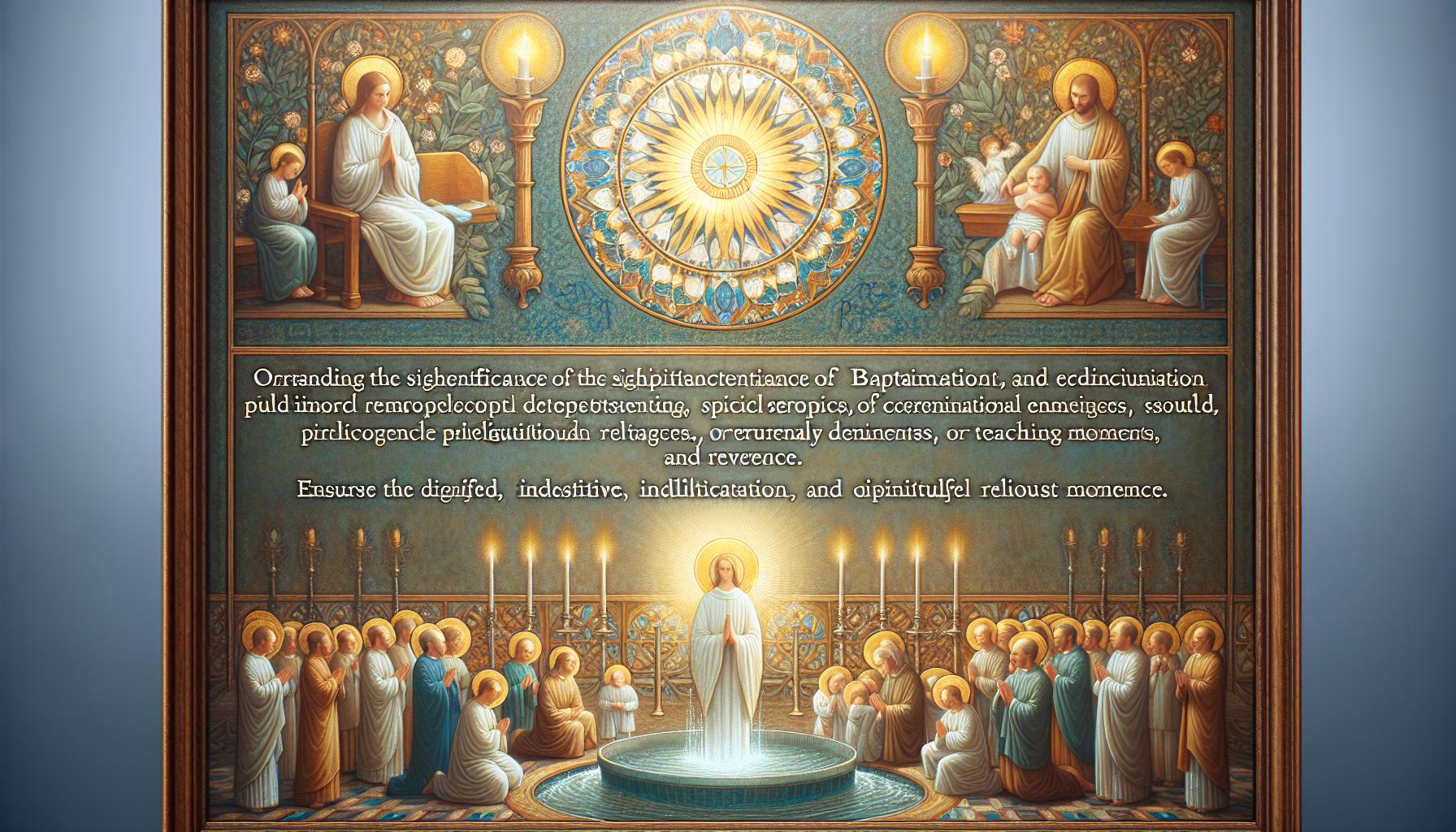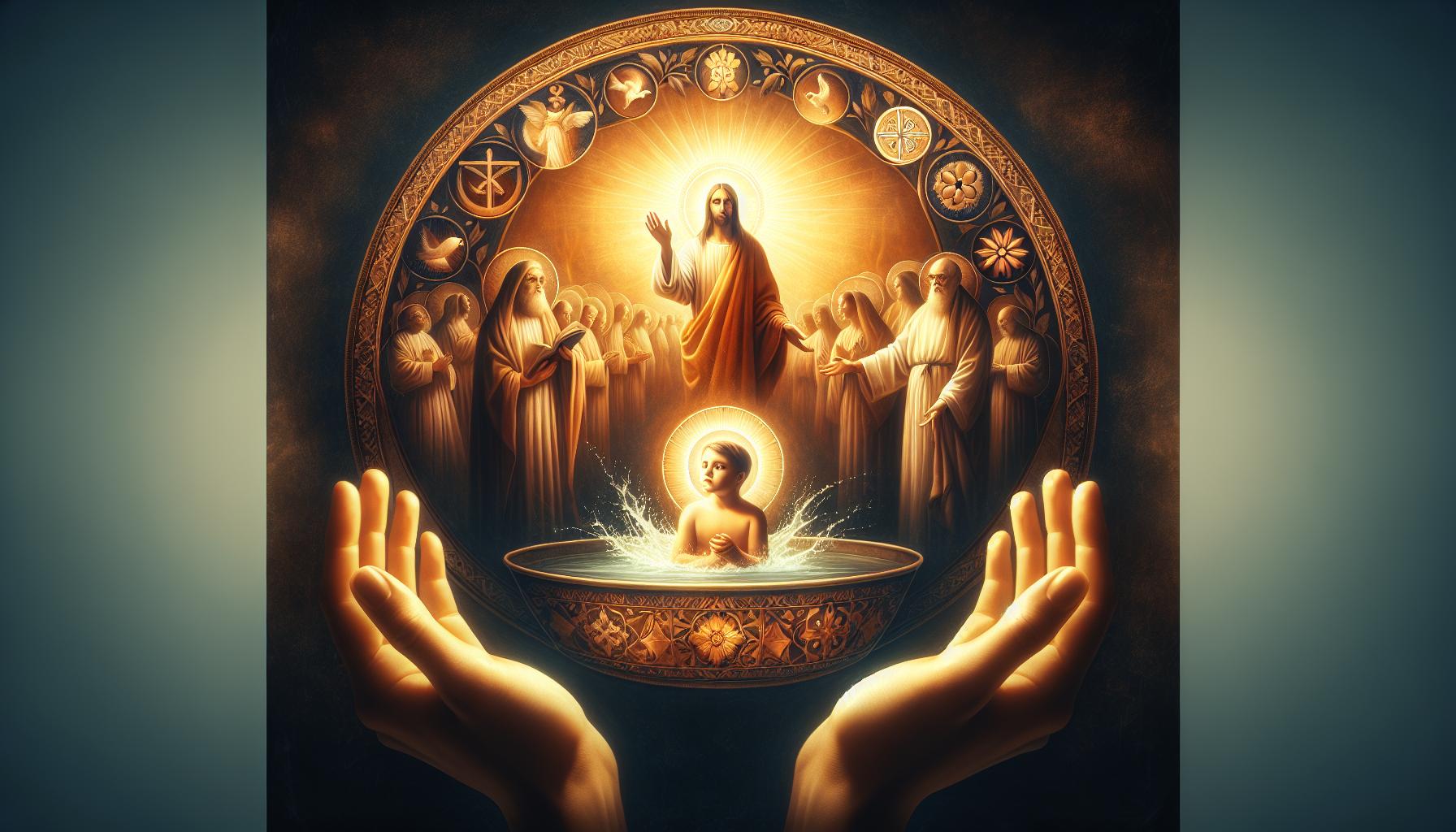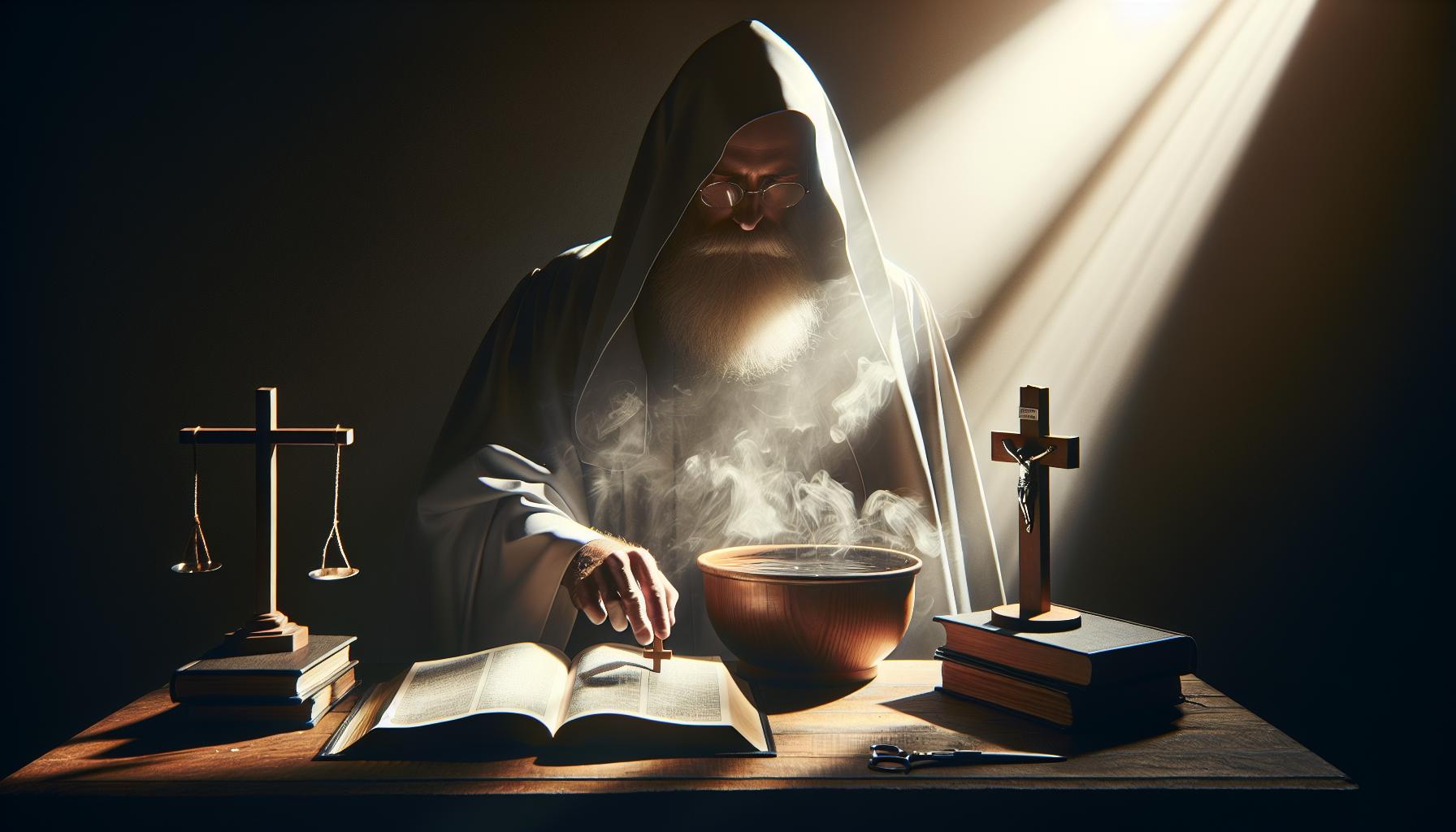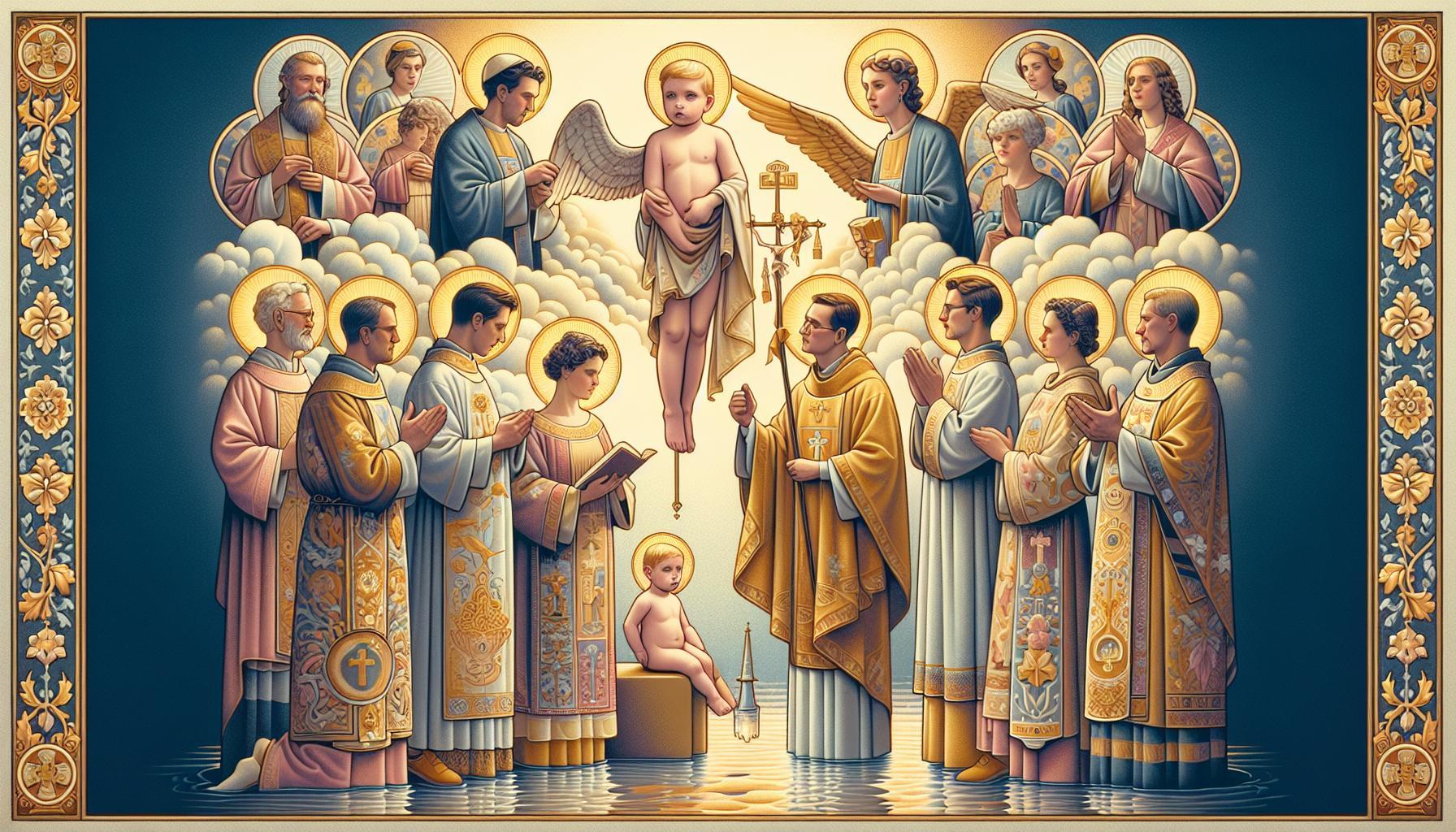Baptism represents a significant milestone in the spiritual journey of individuals and families, fostering community and faith. As Baptism Weekend approaches, many wonder about its dates, traditions, and how to prepare effectively. Understanding these aspects is essential for making the most of this sacred event, ensuring a meaningful and memorable experience for all involved.
Understanding the Significance of Baptism Weekend
Baptism Weekend serves as a profound celebration within the Christian community, symbolizing new beginnings and spiritual rebirth. For many congregations, this event is a pivotal moment where personal testimonies of faith converge in a communal atmosphere. During this time, individuals take a courageous step to publicly declare their faith through water baptism, resonating with Jesus’ own baptism, which was both a personal act and a public proclamation of His mission and purpose.
The Spiritual Significance
The act of baptism is deeply rooted in biblical tradition, signifying an outward expression of an inward transformation. It embodies a believer’s commitment to a life aligned with Christ’s teachings. As participants enter the water, they not only symbolize the washing away of their past but also embrace a new identity in faith. This powerful metaphor is reinforced through various scriptural references, such as Romans 6:4, which highlights the believer’s identification with Christ’s death, burial, and resurrection. Consequently, this ritual expands beyond mere tradition; it’s a sacred moment that invites individuals to reflect on their spiritual journeys and encourages their community to engage in their stories.
Preparing for Baptism Weekend
Preparation for Baptism Weekend involves both personal and communal aspects. Here are some practical steps to consider:
- Personal Reflection: Before the event, candidates should engage in spiritual reflection and prayer to deepen their understanding of the baptism’s meaning.
- Share Your Story: Many churches encourage candidates to share their testimonies. This allows participants to connect with their community and inspire others.
- Participate in Classes: Many congregations offer pre-baptism classes designed to educate candidates about the significance of baptism, providing a solid foundation for their decision.
- Invite Family and Friends: Making the occasion special by inviting loved ones enhances the joy of the moment, creating a supportive atmosphere.
Finally, remember that Baptism Weekend is not solely a day for those being baptized. It’s a collective mark on the church community, reinforcing its commitment to faith and fellowship. Recognizing when Baptism Weekend occurs and participating actively in its traditions fosters an environment rich in support, celebration, and shared beliefs, thus enriching the spiritual life of everyone involved. This event serves as a reminder of the ongoing journey of faith, encouraging not just individuals, but the entire community to reflect on their spiritual commitments and the transformative power of belief.
Key Dates for This Year’s Baptism Celebrations
Baptism represents a significant spiritual milestone, celebrated by many Christian communities around the world. Each year, various churches plan specific weekends for baptism ceremonies, creating a unique opportunity for families and congregations to come together in faith. To help you prepare for this year’s important dates, let’s outline the key occasions for baptism celebrations.
Upcoming Key Dates
As you plan the special occasion, familiarize yourself with the relevant dates on the liturgical calendar that often feature baptism ceremonies. Notably, the Feast of the Baptism of the Lord occurs on January 12, 2025. This celebration marks the baptism of Jesus by John the Baptist and serves as a pertinent reminder of the sacrament’s significance in the Christian faith [[2](https://holyjoys.org/2025-guide-calendar/)].
Furthermore, many churches host their own designated baptism weekends, typically during the following times:
- New Year’s Weekend
- Spring: Often around Easter when new members are welcomed into the church
- Mid-summer: Many congregations have summer programs that include baptisms
- All Saints’ Day: Celebrated on November 1st, some churches offer baptism for those wishing to honor their faithful loved ones
Planning Your Baptism Weekend
To ensure a smooth and meaningful baptism celebration, begin by coordinating with your church’s leaders well in advance of these dates. This includes confirming the schedule, understanding any specific requirements, and selecting godparents. Many families also choose to celebrate with a gathering post ceremony, where shared meals and fellowship can create lasting memories.
Considering these important dates will facilitate not only your preparations but also deepen the shared experience within your community. Make note of them in your calendar, and reach out to clergy for any further information on how to participate in this enriching celebration of faith.
Exploring Common Traditions Surrounding Baptism
Baptism is one of the most significant rites of passage in Christianity, celebrated with a variety of unique traditions that vary across denominations and cultures. This sacred ceremony not only marks the entrance into the Christian community but also symbolizes a profound commitment to faith and the transformative power of grace. Many churches designate specific weekends throughout the year for baptisms, allowing families to come together and celebrate this important milestone. Understanding the common traditions surrounding baptism can enrich the experience and help families prepare meaningfully for this occasion.
Celebratory Gatherings
A common tradition accompanying baptism is the gathering of family and friends who come to witness the ceremony. This event often serves as a community celebration, where loved ones share in the joy of welcoming the baptized into the faith. After the ceremony, families typically host a reception or a meal, reinforcing connections and creating lasting memories. It can be beneficial to plan this gathering in advance, considering details such as venue, catering, and activities to engage guests of all ages.
Personalized Keepsakes
Making the baptism memorable often involves various keepsakes that honor the occasion. Families may choose to gift baptismal certificates, personalized gowns, or even customized cross necklaces, which are especially prevalent in certain denominations like the Eastern Orthodox Church. These items can serve as cherished mementos and reminders of the spiritual commitment made during the ceremony. Parents may also consider creating a baptism scrapbook or photo album, documenting this significant day for future generations to treasure.
Incorporation of Rituals
The baptism ceremony itself is rich with rituals, such as the use of water—symbolizing purification and rebirth—and the Trinitarian invocation, “In the name of the Father, and of the Son, and of the Holy Spirit.” In many traditions, immersion or pouring is accompanied by prayers and blessings from the officiating clergy. Understanding these elements can help families appreciate the depth of the service and prepare for their roles within it, whether as participants or witnesses.
Planning Ahead for a Memorable Ceremony
Preparation is key to a successful baptism weekend. Here are some steps families can take:
- Communicate with Your Church: Ensure that you know the specific guidelines of your church regarding baptism, including necessary paperwork and scheduling.
- Choose Godparents Wisely: Godparents play a pivotal role in the spiritual upbringing of the baptized. Selecting individuals who are supportive and active members of the faith community is highly recommended.
- Arrange for Guest Seating: Depending on the size of your congregation, planning for guest seating can help manage the flow of the ceremony while ensuring that important family members are present.
By taking these traditions and practical steps into account, families can cultivate a rich and meaningful experience around the question of “When Is Baptism Weekend? Dates, Traditions, and How to Prepare.” Embracing both the spiritual and communal aspects of baptism helps highlight its significance, fostering a sense of belonging and connection within the faith community.
Preparing Spiritually and Practically for Baptism Weekend
As Baptism Weekend approaches, it offers a wonderful opportunity to not only celebrate a significant spiritual milestone but also to ensure that both parents and godparents are fully prepared for the day. Engaging in the preparation process can deepen one’s understanding of the sacrament and enhance the overall experience. Spiritually, families are encouraged to reflect on the meaning of baptism, recognizing it as an initiation into the Catholic faith, which signifies new life in Christ. This period is ideal for prayer and contemplation, allowing families to align their intentions and desires with the teachings of the Church.
To prepare practically for Baptism Weekend, consider the following actionable steps:
- Participate in Pre-Baptism Classes: Engaging in baptism preparation classes can immensely benefit parents and godparents. These classes provide necessary insights into the responsibilities that come with the sacrament, as well as practical guidance regarding the ceremony itself.
- Gather Essential Items: Ensure you have all required items for the baptism, including the baptismal gown, a baptismal candle, and any special gifts or tokens that you wish to offer the child.
- Communicate with Your Parish: Touch base with your parish well in advance to confirm the date and time of the baptism, as well as to clarify any last-minute details or rituals specific to your tradition.
- Plan for the Celebration: Many families choose to celebrate the occasion with a gathering afterward. Planning a small reception can help to create meaningful memories with family and friends.
Spiritual Readiness
Preparing spiritually also involves engaging in rituals that can enhance the significance of the day. Families might choose to attend Mass together regularly in the weeks leading up to the baptism, fostering a sense of community and shared faith. Consider nurturing the child’s future faith life by selecting godparents who are not only supportive but also committed to helping guide their spiritual growth.
Letting Go of Perfectionism
One common concern on Baptism Weekend is striving for a flawless event. However, recognizing that the essence of the baptism is the sacramental act itself rather than the surrounding festivities can ease pressure and allow families to focus on the spiritual significance of the day. Embrace the imperfections that may occur; they often lead to cherished memories that can be recounted for years to come.
Ultimately, engaging in both spiritual and practical preparations for Baptism Weekend allows families to create a memorable and meaningful event that emphasizes the importance of community, spiritual growth, and the responsibilities that accompany the baptism of a child. With thoughtful planning and a heart open to grace, this sacred occasion can nourish a family’s faith journey deeply.
How to Support Those Being Baptized: A Community Guide
As Baptism Weekend approaches, it’s an important time for the community to rally around those who are taking this significant step in their faith journey. Baptism is not only a personal milestone but also a profound communal event, representing a collective expression of faith and support. When asking, “When Is Baptism Weekend? Dates, Traditions, and How to Prepare,” it becomes essential to understand how best to offer encouragement and assistance to those being baptized.
Supporting candidates involves engaging with them both practically and emotionally. Start by creating a welcoming atmosphere at the church. Organize informational sessions leading up to the event, where candidates can gather, ask questions, and connect with others going through the same experience. These gatherings can also serve as an opportunity for experienced members to share their personal stories, fostering an environment of openness and encouragement.
Practical Steps for Community Support
- Encouragement and Prayer: Consider forming small groups focused on prayer and encouragement for baptism candidates. This can provide candidates with a sense of belonging and spiritual backing during their preparation.
- Provide Resources: Share materials that help candidates understand the significance of baptism. Resources like baptism guides or personal testimonies can clarify expectations and deepen their faith.
- Help with the Event: Organize volunteers to assist with logistics on baptism day—setting up, welcoming guests, or even documenting the event with photos. This support can alleviate stress and allow candidates to focus on their commitments.
Another effective method to bolster candidates’ confidence is by preparing a celebratory experience post-baptism. This could include fellowship meals or receptions where family and friends can congratulate the baptized members. Such gatherings highlight the community’s role in spiritual growth and foster lasting connections.
Ultimately, as we prepare for Baptism Weekend, understanding how to support members of our community can transform the experience into one of love, shared faith, and a deeper commitment to spiritual life. Engaging in these practices enriches not only the candidates’ journey but the entire congregation’s faith experience as well.
Insights from Church Leaders on Baptism Practices
Baptism serves as a pivotal rite of passage within Christian communities, with varying practices reflecting rich traditions. Church leaders frequently offer profound insights into the significance of baptism, emphasizing that it is not merely a ritual but a spiritual commitment that unifies believers with the broader faith community. During discussions surrounding events such as “When Is Baptism Weekend? Dates, Traditions, and How to Prepare,” leaders highlight the depth of meaning behind each baptism date, often aligning it with key liturgical moments that inspire congregations.
The Spiritual Significance of Baptism
Many church leaders stress the importance of understanding baptism as an initiation into the life of faith. It symbolizes both personal commitment and initiation into the Church. Leaders explain that as part of preparation for baptism, candidates and their families should engage in a series of classes or meetings designed to deepen their understanding of the faith. This preparation is crucial, ensuring that individuals appreciate the weight of the vows they will take—vows that reflect their commitment to Christ and the responsibilities within the church community.
Church leaders often emphasize the inclusion of the entire congregation in the baptism process, reinforcing the idea that baptism is a communal event. They encourage congregations to express support through participation, whether by praying for those being baptized or publicly affirming their commitment to support the new believers.
Practical Considerations for Baptism Weekend
Preparing for baptism weekends involves not just logistics but also nurturing spiritual readiness. Church leaders recommend practical steps for families looking to prepare themselves for these important ceremonies:
- Engage with Preparation Sessions: Attend informational meetings offered by the church to understand the significance and procedures involved in baptism.
- Involve Family and Friends: Plan for loved ones to join the celebration, creating a sense of shared joy and support.
- Consider Special Traditions: Incorporate unique customs, such as the gifting of a cross necklace for baptized children, to create lasting memories.
Moreover, leaders suggest that families reflect on the profound commitment being made—not just during the ceremony but as part of ongoing church life. Whether it’s through regular attendance or involvement in community service, the journey doesn’t end with the baptism but rather begins a new chapter in the faithful life of the individual.
In sum, the insights shared by church leaders surrounding baptism practices are rooted in a deep understanding of tradition and community. As congregations prepare for events like “When Is Baptism Weekend? Dates, Traditions, and How to Prepare,” these insights encourage a holistic approach that encompasses both spiritual and practical aspects, ensuring that the rite of baptism is a transformative experience for all involved.
Celebrating Inclusivity: Embracing Diverse Baptism Styles
Baptism is a deeply significant ritual in many religious traditions, symbolizing not only a personal commitment but also a welcoming embrace into a larger community. In today’s world, where inclusivity is more valued than ever, diverse baptism styles are emerging to reflect the unique beliefs and backgrounds of individuals. Celebrating these variations allows congregations to honor traditions while fostering a sense of belonging among participants.
Embracing Diverse Traditions
Many communities are increasingly recognizing the importance of inclusivity in their baptism practices. This shift can lead to several forms of baptism ceremonies that cater to varied beliefs and interpretations. Whether it’s interfaith baptisms that blend elements from different religions or personalized ceremonies that reflect individual narratives, inclusivity in baptism signifies a collective spirit of support and affirmation.
Consider these options when planning a baptism that embraces diversity:
- Interfaith Baptisms: These ceremonies unite individuals from different religious backgrounds, showcasing common values and shared celebrations.
- Family-Centered Ceremonies: Involving family members in the baptism process can create a strong sense of community and connection.
- Rituals from Global Practices: Incorporating elements from various cultural baptismal traditions can enrich the experience and honor diverse heritages.
Creating an Inclusive Environment
To ensure that a baptism ceremony is genuinely inclusive, it is crucial to consider the space, language, and rituals involved. The environment should reflect a welcoming atmosphere for all participants, regardless of their backgrounds. Here are practical steps to enhance inclusivity:
| Action | Description |
|---|---|
| Use Inclusive Language | Choose words that resonate across different traditions and avoid specific religious jargon that may alienate some participants. |
| Offer Personalization Options | Allow families to select readings, prayers, or songs that hold personal significance for them, fostering a sense of ownership. |
| Engage Multiple Leaders | Having leaders from various faiths co-officiate can enhance the ceremony’s inclusivity and celebrate diverse beliefs. |
By thoughtfully embracing diverse baptism styles, communities can create meaningful celebrations that respect and honor the unique journeys of all participants. These inclusive practices not only strengthen the bonds within the congregation but also reflect a broader understanding of what it means to belong. As you plan your next baptism event, consider how these inclusive strategies can make the experience richer for everyone involved.
Reflecting on the Journey: Stories and Testimonials from Recent Baptisms
Every baptism tells a story, a testament to personal transformation and commitment. As we reflect on recent baptisms, we witness diverse journeys filled with hope, redemption, and newfound faith. Each individual who steps into the waters resonates with echoes of their past, dreams of their future, and the profound significance of this sacred act. These stories are not just narratives; they exemplify the beauty of community, the power of belief, and the act of surrendering one’s life to Christ during events like Baptism Weekend.
Transformative Experiences
Consider the powerful testimony of a local community member who recently embraced baptism as part of their spiritual journey. Before this experience, they faced numerous challenges—struggles with identity, fear, and isolation. Standing before their friends and family during Baptism Weekend, they openly shared how their faith provided the light needed to navigate darkness, claiming a life reinforced by purpose and connection. This moment encapsulated the essence of what baptism represents: death to an old life and rebirth into a supportive, faith-filled community.
The Road to Faith
Another moving account comes from a mother who decided to get baptized alongside her child during a family-oriented Baptism Weekend event. Her testimony highlighted the importance of leading by example. She confessed that, despite her upbringing in the church, it wasn’t until adulthood that she truly understood the meaning of salvation. Her decision to unite in baptism not only marked her personal dedication but also served as a pivotal moment for her child, instilling the values of faith and community in a tangible way. This dual baptism resonates with the understanding that faith is often a generational journey, emphasizing the significance of shared traditions.
Key Takeaways for Future Candidates
For those contemplating baptism, hearing these testimonials can be incredibly encouraging. Here are some actionable steps to prepare for your own baptism experience, whether during the next celebrated weekend or another special occasion:
- Reflect on Your Journey: Take time to think about your life before faith and how you’ve changed since accepting Christ.
- Write Your Story: Document your journey, just like these recent candidates. This testimony will not only help you articulate your faith but also inspire others.
- Invite Family and Friends: Share the experience with your loved ones to strengthen connections and foster community support.
- Engage in Preparation Events: Participate in pre-baptism classes or discussions offered by your church to deepen your understanding of the process and its significance.
Reflecting on these transformative stories can motivate others to take the plunge, both literally and metaphorically, during Baptism Weekend, reaffirming their commitment to faith and community.
FAQ
When is Baptism Weekend?
Baptism Weekend usually takes place at specific times during the year, often aligned with significant church traditions or liturgical calendars. For many churches, it occurs during Easter, Pentecost, or other meaningful seasons.
To find the exact dates, check with your local church’s calendar or their website, as they typically announce these events in advance. Participating in Baptism Weekend is a wonderful opportunity to publicly declare your faith.
What traditions are associated with Baptism Weekend?
On Baptism Weekend, various traditions may include immersion in water, anointing with oil, and communal gatherings. These practices symbolize purification and spiritual rebirth.
Each denomination may have unique customs surrounding baptism, such as the involvement of godparents or a special service. Understanding these traditions can enhance your experience of Baptism Weekend.
How can I prepare for Baptism Weekend?
To prepare for Baptism Weekend, it’s important to engage in prayer, attend pre-baptism classes, and communicate with church leaders. This preparation helps deepen your understanding of the sacrament.
Being spiritually ready is crucial. Reflect on your faith journey and understand the significance of baptism as a commitment to your faith community and personal relationship with Jesus Christ.
Can I be baptized if I was baptized previously?
Many churches believe in the concept of one baptism for forgiveness. However, if your understanding or commitment has changed, you may seek a reaffirmation of your faith through a new baptism.
It’s best to discuss this with your church leaders, as they can guide you based on your specific situation and doctrinal beliefs.
Why does baptism matter in the Christian faith?
Baptism is a crucial rite in Christianity, symbolizing purification, rebirth, and a public declaration of faith. It marks a believer’s entry into the faith community.
By participating in this sacred act, individuals express their commitment to follow Jesus Christ. It serves as a powerful testimony to one’s transformation and new life.
What should I wear for Baptism Weekend?
It’s recommended to wear comfortable clothing, often including a bathing suit underneath, as baptisms may involve immersion in water. Some choose white attire to symbolize purity and new beginnings.
Additionally, check if your church provides specific garments for baptism. Respect the traditions of your congregation while ensuring you feel comfortable during the ceremony.
Can family and friends attend Baptism Weekend?
Yes, family and friends are typically welcomed to attend Baptism Weekend. Their presence supports the individual being baptized and strengthens the community.
Encouraging loved ones to share in this experience is wonderful, as baptism is not only a personal milestone but also a communal celebration of faith.
Future Outlook
As you prepare for Baptism Weekend, it is essential to reflect on its profound spiritual significance and communal aspects. Understanding the scriptural foundations of baptism, its importance as a public declaration of faith, and the rich traditions surrounding this sacred event can enhance your experience.
Many churches hold Baptism Weekends regularly, providing opportunities to celebrate personal testimonies and encourage new believers. Remember, engagement in this event is not just about undergoing the ritual; it’s about embracing a transformative journey within a community that supports and uplifts each other.
As you dive deeper into the meanings and preparations for Baptism Weekend, we invite you to explore various resources and teachings offered by local churches. These experiences can help you connect more meaningfully with the sacrament and enrich your spiritual life. Together, let’s embrace this moment of joy and commitment, celebrating the diverse expressions of faith within our communities.





